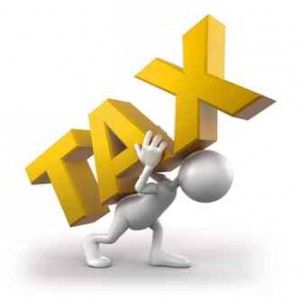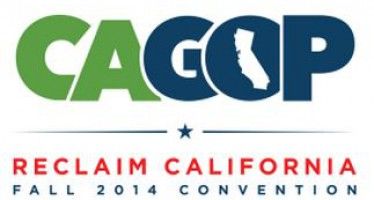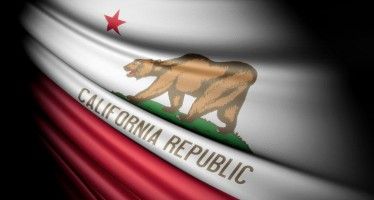CA imposes taxes near highest in the U.S.

 If Tax Day 2014 had you feeling down, consider how much less you would have paid in another state.
If Tax Day 2014 had you feeling down, consider how much less you would have paid in another state.
According to a report on state and local tax rates published by WalletHub, California has the second-highest local and state tax burden in the country. The average resident of the Golden State, according tho the survey, pays $9,509 in annual state and local states.
That puts California 36 percent higher than the national average and with the second-highest state and local tax burden in the country. The only state with a higher state and local tax burden is New York.
“Economic mobility – that is, our ability to climb the proverbial ladder – has a strong correlation to where we live,” writes WalletHub’s John Kiernan.
The WalletHub tax analysis took into consideration eight different taxes: real estate taxes, state and local income taxes, vehicle property and sales taxes, overall sales and use taxes, fuel taxes, alcohol taxes, food taxes and telecom taxes.
Tax Freedom Day on April 30th
WalletHub’s local and state tax findings are bolstered by the Tax Foundation’s annual report on state and local tax burdens. In 2014, it placed California with the fourth highest state and local tax burden in the nation.
The average Californian, according to the Tax Foundation survey, pays 11.4 percent of their income to state and local governments. That means, the average taxpayer must work until April 30, just to pay the government’s share.
There’s some reason to believe that the Tax Foundation’s numbers are skewed toward a lower tax bill. Its report used figures from 2011, which was before Proposition 30‘s $7 billion increases on sales and income taxes took effect in California.

California’s high poverty, high cost of living
California’s tax burden is compounded by a cost of living that vastly exceeds the national average. California has the highest poverty rate in the country, under the U.S. Census Bureau’s Supplemental Poverty Measure, which takes into consideration cost of living. Roughly 9 million Californians live in poverty under that metric.
In contrast, the official poverty rate, which was created during the Johnson administration’s “war on poverty,” leaves California with an official rate of 16.5 percent, which is higher than the national average but surpassed by other states. The official poverty threshold is three times the cost of a minimum food diet, with annual revisions based on inflation. Critics point out that such a rate does not vary geographically.
High burden of local and state taxes
With substantial differences in the cost of living and taxes for each state, the result is an American Dream limited by geography.
“The United States has historically been viewed as the ‘land of opportunity,’ a society in which a child’s chances of succeeding do not depend heavily on her parents’ income or circumstances,” a team of researchers at Harvard University and the University of California, Berkeley wrote in a July 2013 paper. “But there is growing evidence that intergenerational income mobility in the U.S. is actually lower than in many other developed countries.”
“The U.S. is better described as a collection of societies, some of which are ‘lands of opportunity’ with high rates of mobility across generations, and others in which few children escape poverty,” the researchers concluded in January.
Precursor for tax revolt
California’s high tax rates has some questioning whether it will inevitably lead to another tax revolt, akin to Proposition 13 in 1978.
“On Tax Day 2014, California is creeping toward a point that the issue of taxation may once again be selected as the main concern for the state’s voters,” Joel Fox, the publisher of Fox and Hounds, recently predicted.
Yet, he also acknowledged how far-fetched that might sound.
“That might seem an irrational statement when you consider that in the most recent Public Policy Institute poll, taxes as a concern were ranked sixth behind, in order, jobs and the economy, water/drought, education, immigration and health care,” he wrote.
States with the Lowest Taxes (vs. National Avg.)
- Wyoming (-66%)
- Alaska (-60%)
- Nevada (-52%)
- Florida (-48%)
- South Dakota (-46%)
- Washington (-45%)
- Texas (-25%)
- Delaware (-25%)
- North Dakota (-20%)
- Colorado (-18%)
Related Articles
CA GOP Fall Convention pushes liberty
This past weekend, California Republicans gathered in Los Angeles for their annual Fall Convention under the banner, “Reclaim California.” Throughout
PG&E pays the price for deadly explosion — CA doesn’t
Late on a September afternoon in 2010, the big orange California sun was dropping toward Sweeney Ridge just east of
Here’s 10 things about Tuesday’s election
Tuesday’s election upended everything most experts thought they knew about politics, when Donald Trump defeated Hillary Clinton to become the




